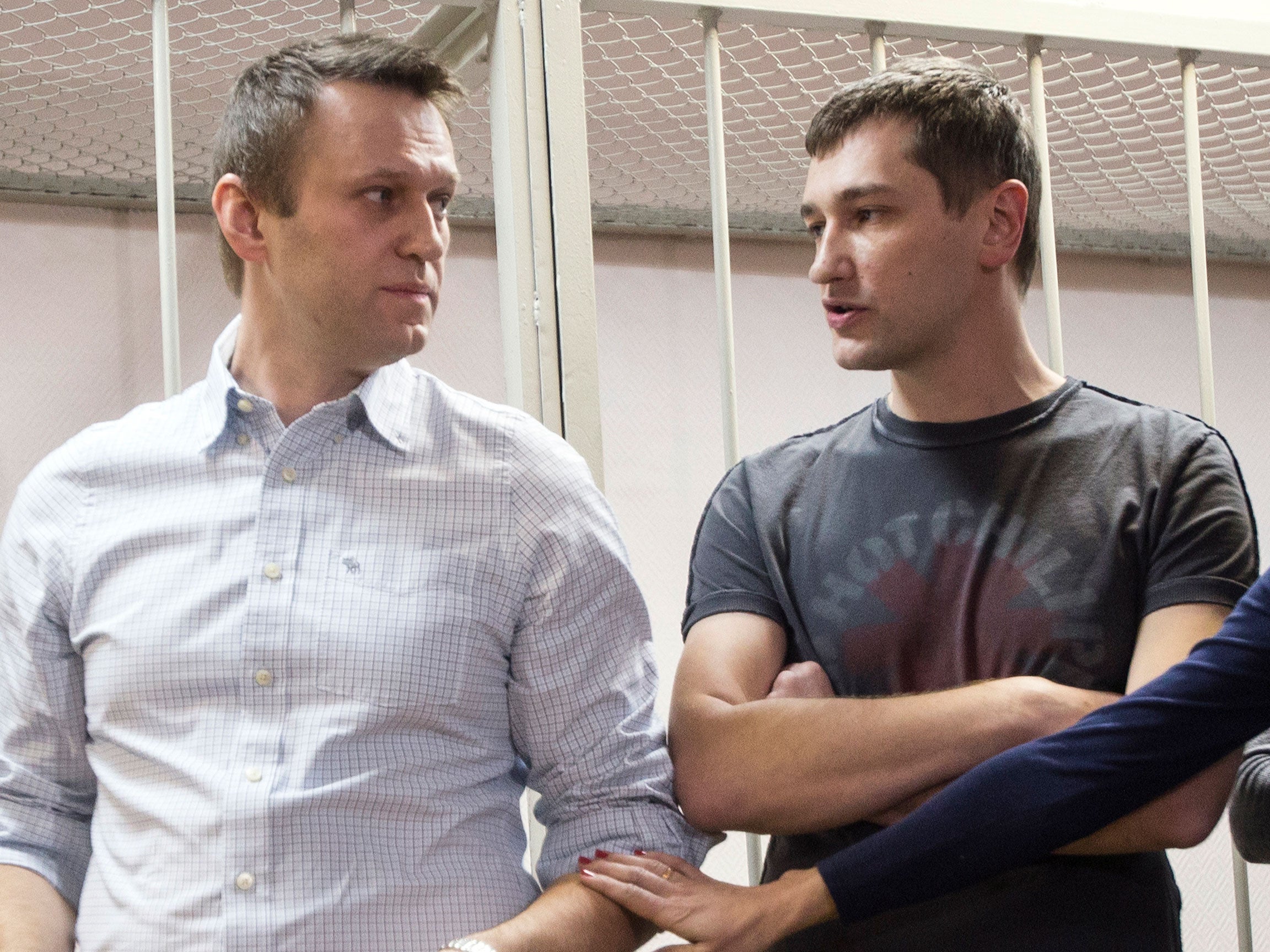A 'brutal clarity' emerges from show trial of Vladimir Putin's arch-enemy Alexei Navalny
The Kremlin doesn't want him to become a martyr to the anti-corruption cause, but nor do they want to leave him free to campaign


Your support helps us to tell the story
From reproductive rights to climate change to Big Tech, The Independent is on the ground when the story is developing. Whether it's investigating the financials of Elon Musk's pro-Trump PAC or producing our latest documentary, 'The A Word', which shines a light on the American women fighting for reproductive rights, we know how important it is to parse out the facts from the messaging.
At such a critical moment in US history, we need reporters on the ground. Your donation allows us to keep sending journalists to speak to both sides of the story.
The Independent is trusted by Americans across the entire political spectrum. And unlike many other quality news outlets, we choose not to lock Americans out of our reporting and analysis with paywalls. We believe quality journalism should be available to everyone, paid for by those who can afford it.
Your support makes all the difference.Subtlety has never been the Kremlin’s forte, but the sentence handed down by a Moscow court to the political activist and anti-corruption campaigner Alexei Navalny seemed expressly designed to confuse. By the evening, when Navalny was arrested at a street demonstration called to support him, a certain brutal clarity had emerged.
Navalny had been in the dock with his brother, Oleg, who was at one time a state employee and is not regarded as politically engaged. They were both accused of embezzlement from the Yves Rocher cosmetics company – charges believed by Navalny’s supporters to have been trumped up to neutralise him as an opposition leader and discredit him as a campaigner against corruption. Whether or not the charges were suspect, the timing of today’s sentencing certainly was.
The only obvious reason for the new timing was to wrong-foot Navalny’s supporters. Bringing the hearing forward to the day before the start of Russia’s 10-day winter holiday, from New Year’s Eve through Orthodox Christmas – also meant that many would-be protesters would either be out of Moscow or otherwise engaged. Thanks to the social media – which is where, incidentally, Navalny initiated his anti-corruption campaign so successfully in 2008 – such calculations are less reliable than they used to be.
It can be argued that Navalny knew exactly what he was doing by attending the demonstration and was baiting the authorities to arrest him. He has not in the past seemed to court martyrdom, but the complexities of the sentencing appear to have left him exasperated.
Alexei fully expected, so it seemed, to go to prison. This is not what happened. His three-and-a-half-year sentence was suspended (like his earlier sentence for a fraud conviction), while his generally non-political brother was told he would be locked up. For many Russians, and not only those sympathetic to Navalny’s cause, this apparent inconsistency echoed notorious Soviet-era tactics, where the perceived sins of one family member were visited on others. It leaves Oleg in the invidious position of being held hostage against the “good behaviour” of his brother.
It is hard not to see the hand of Russia’s state security, if not actually the Kremlin, behind this double move. But it also suggests that the authorities regard Alexei Navalny as an unusually dangerous opponent. They clearly do not want him to become anything like a martyr to the anti-corruption cause, but nor do they want to leave him free to campaign. What happened today steered a course somewhere between the two.
Less understandable is why the Kremlin feels it must tread so carefully over Navalny. After all, Vladimir Putin is still riding the wave of popularity. One possible explanation is that the Kremlin is looking to a more difficult future. Does it perhaps understand that Navalny’s personal charisma, his anti-corruption message, and the long-standing nationalist tinge to his politics, combine to give him particular popular appeal – and make him more of a threat than he currently looks.
Join our commenting forum
Join thought-provoking conversations, follow other Independent readers and see their replies
Comments